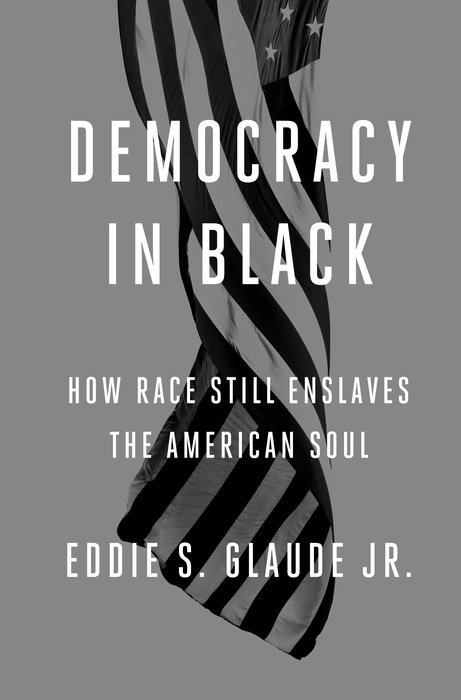Review ‘Democracy in Black’ is a bracing call to action for African Americans
The Los Angeles Times
2016-01-21
Kiese Laymon, Professor of English
Vassar College, Poughkeepsie, New York
Eddie S. Glaude Jr., Democracy in Black: How Race Still Enslaves the American Soul (New York: Crown, 2016)
“We laud our democratic virtues to others and represent ourselves to the world as a place of freedom and equality,” Eddie Glaude writes of the U.S. in his unflinching new book, “Democracy in Black,” “all while our way of life makes possible choices that reproduce so much evil, and we don’t see it happening — or worse, we don’t want to know about it.”
Glaude’s “Democracy in Black: How Race Still Enslaves the American Soul” is as narratively unrelenting as it is thematically percussive, calling for black Americans to take dramatic action in our lives, voting booths and on the streets to contend with a “value gap” that has left African Americans behind socially and economically.
On Jan. 13, Barack Obama, the first black president of the United States, delivered a boastful State of the Union rooted in American exceptionalism, the importance of political cooperation and predictably, what we have, will, and can do to our enemies with our big American guns. Eight days earlier, Obama had held a press conference during which he cried over the murders of 30 American children and countless others victims of citizens wielding small American guns.
I watched both political spectacles, knowing that while the violent, often racist American weight on President’s Obama’s back has been so terrifyingly heavy, the violent, exceptional American weight that he and all American presidents must abusively wield is heavier. “Democracy in Black,” one of the most imaginative, daring books of the 21st century, effectively argues that this weight — rooted in American exceptionalism — impedes a national reckoning of how the racial “value gap” in our nation sanctions black Americans terror while providing systemic unearned value to white Americans.
The book asks us to reconsider not simply what presidential tears for systemic violence initiated and condoned by our nation might look like, but what can a revolution fueled by politically active black Americans wholly disinterested in presidential tears, speeches or “post-racial” policy actually accomplish. In this way, the book is not just post-Obama; it is post-presidential…
Read the entire review here.
